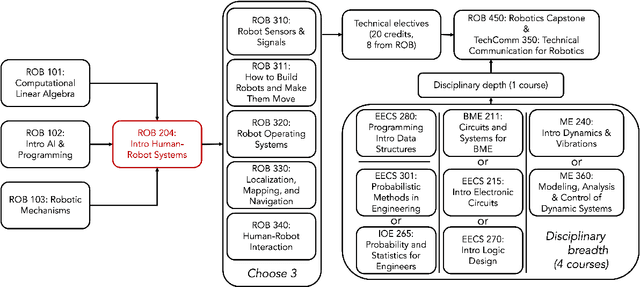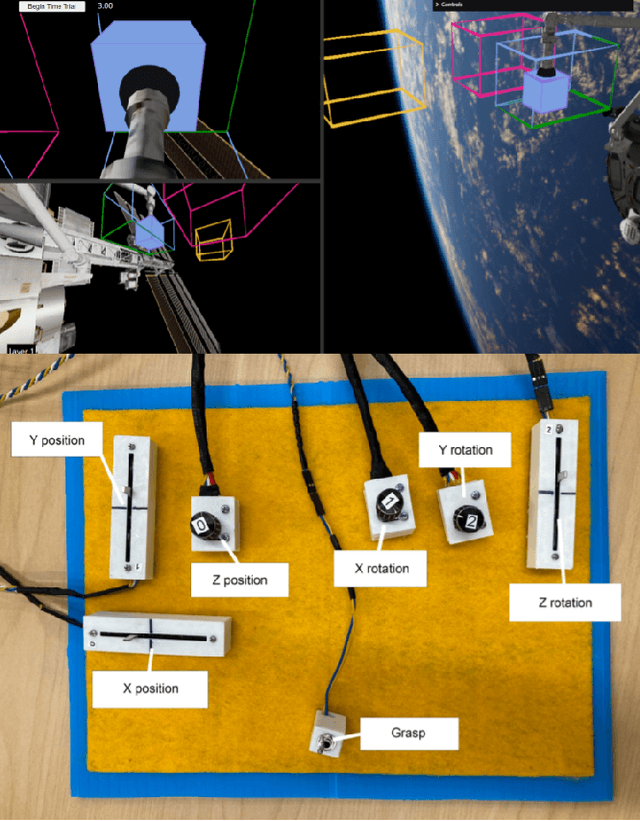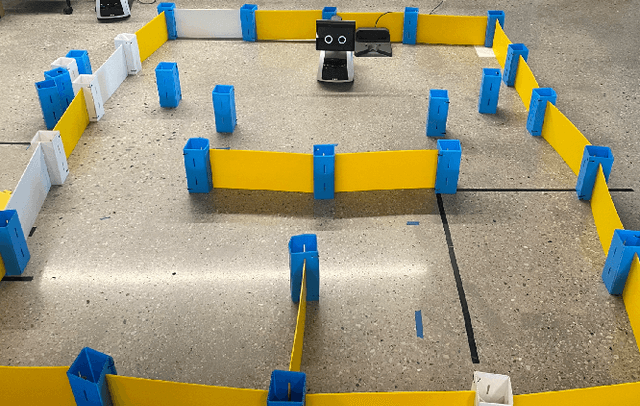Leia Stirling
Measuring Trust for Exoskeleton Systems
Jul 09, 2024Abstract:Wearable robotic systems are a class of robots that have a tight coupling between human and robot movements. Similar to non-wearable robots, it is important to measure the trust a person has that the robot can support achieving the desired goals. While some measures of trust may apply to all potential robotic roles, there are key distinctions between wearable and non-wearable robotic systems. In this paper, we considered the dimensions and sub-dimensions of trust, with example attributes defined for exoskeleton applications. As the research community comes together to discuss measures of trust, it will be important to consider how the selected measures support interpreting trust along different dimensions for the variety of robotic systems that are emerging in the field in a way that leads to actionable outcomes.
ROB 204: Introduction to Human-Robot Systems at the University of Michigan, Ann Arbor
May 23, 2024



Abstract:The University of Michigan Robotics program focuses on the study of embodied intelligence that must sense, reason, act, and work with people to improve quality of life and productivity equitably across society. ROB 204, part of the core curriculum towards the undergraduate degree in Robotics, introduces students to topics that enable conceptually designing a robotic system to address users' needs from a sociotechnical context. Students are introduced to human-robot interaction (HRI) concepts and the process for socially-engaged design with a Learn-Reinforce-Integrate approach. In this paper, we discuss the course topics and our teaching methodology, and provide recommendations for delivering this material. Overall, students leave the course with a new understanding and appreciation for how human capabilities can inform requirements for a robotics system, how humans can interact with a robot, and how to assess the usability of robotic systems.
The Michigan Robotics Undergraduate Curriculum: Defining the Discipline of Robotics for Equity and Excellence
Aug 14, 2023Abstract:The Robotics Major at the University of Michigan was successfully launched in the 2022-23 academic year as an innovative step forward to better serve students, our communities, and our society. Building on our guiding principle of "Robotics with Respect" and our larger Robotics Pathways model, the Michigan Robotics Major was designed to define robotics as a true academic discipline with both equity and excellence as our highest priorities. Understanding that talent is equally distributed but opportunity is not, the Michigan Robotics Major has embraced an adaptable curriculum that is accessible through a diversity of student pathways and enables successful and sustained career-long participation in robotics, AI, and automation professions. The results after our planning efforts (2019-22) and first academic year (2022-23) have been highly encouraging: more than 100 students declared Robotics as their major, completion of the Robotics major by our first two graduates, soaring enrollments in our Robotics classes, thriving partnerships with Historically Black Colleges and Universities. This document provides our original curricular proposal for the Robotics Undergraduate Program at the University of Michigan, submitted to the Michigan Association of State Universities in April 2022 and approved in June 2022. The dissemination of our program design is in the spirit of continued growth for higher education towards realizing equity and excellence. The most recent version of this document is also available on Google Docs through this link: https://ocj.me/robotics_major
 Add to Chrome
Add to Chrome Add to Firefox
Add to Firefox Add to Edge
Add to Edge